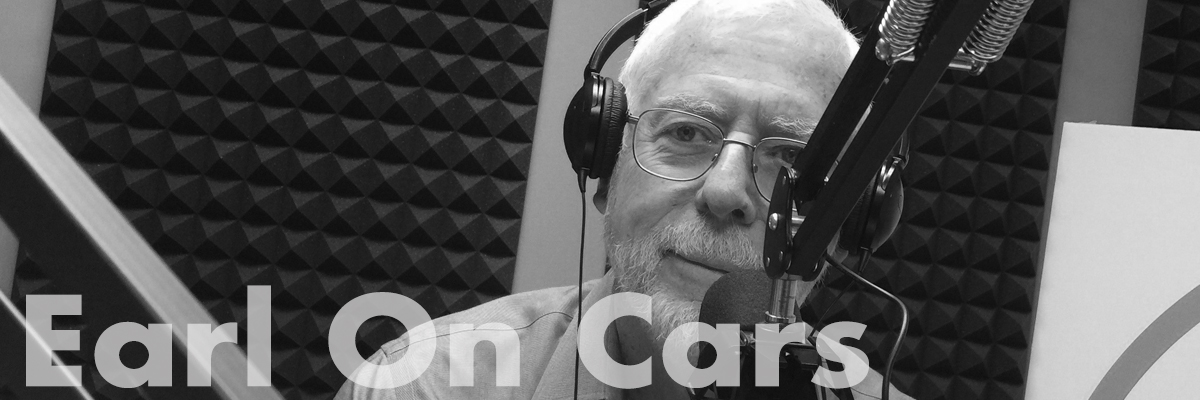This blog post originally ran five years ago. It’s important that I run it again today because violation of this Federal law, especially its intent, which is to inform car buyers of the official retail price suggested by the car manufacturer, is rampant by most car dealers. The US Senator who drafted this law, Mike Monroney, said this about his law, “The dealer who is honest about the so-called ‘list price’ cannot compete with the one who ‘packs’ several hundred dollars extra into it so he can pretend to give you more on the trade-in.” Senator Monroney said this in 1958 and the only thing that has changed is that dishonest dealers are now charging severalthousand dollars extra. As I write this, the national average price of a gallon of gas is over $4 and climbing. Car dealers are marking up fuel efficient cars, especially, hybrids by thousands of dollars. They add their dealer window sticker, identical in style to the Monroney label right next to it so that it’s virtually indistinguishable. Then, to add insult to injury, they remove the both labels before delivery which is illegal.
“Phony Monroney” should not be
confused with “Boney Maroney” (I got a gal named Boney Maroney. She’s as
skinny as a stick of macaroni). That song was first recorded by Larry
Williams during my high school years, 1956-1958. You will appreciate this lame
attempt at humor only if you are about my age, 73.
The Monroney label is the window
sticker that is mandated by federal law to be affixed to every new vehicle sold
in the United States up until the time the new owner takes delivery. The name,
Monroney, derives from Senator Michael Monroney’s law passed by Congress in
1958. Prior to the proposal of this bill, there was often a large discrepancy
between the showroom price and the actual price of a new vehicle. The
fact was that existing price tags did not tell the full story. Most
customer-quoted prices were for "stripped-down" models and did not
include additions for preparation charges, freight charges, federal, state, and
local taxes, or optional factory-installed equipment requested by the
purchaser. These hidden charges were used by some dealers to increase the
selling price while giving the new vehicle buyer an inflated idea of their
trade-in allowance. This price confusion led to a slump in auto sales
during the early 1950's. Senator Monroney's bill was designed to prevent
the abuse of the new vehicle list prices, but would not, however, prevent
dealers and buyers from bargaining over vehicle prices.
Well, as you might expect, car dealers
have figured out a way to evade this very good law. An alarmingly large number
of dealers use a label that is designed to look almost identical to the
official Monroney label. It has the same coloring, fonts, type size and layout.
This “phony Monroney” is affixed right next to the genuine article. Unless you
really look close and read all of the fine print, you will have no idea that
you are looking at a counterfeit Monroney label. This phony Monroney includes
extra charges to artificially inflate the manufacturer’s suggested list price,
MSRP.
One of the most egregious of these
charges is an addition of pure markup just for profit which has a variety of
names. Some of these are “Market Adjustment”, “Additional Dealer Markup”,
“Adjusted Market Value”, “ADM”, “Market Adjustment Addendum” and “Market Value
Adjustment”. This is simply an amount that the dealer adds to the
manufacturer’s suggested retail price. It is virtually always used in
high-demand, low supply cars. I have seen these labels with charges as much as
$10,000 added to the MSRP. Additions of $1,500 to $3,995 are common. Dealers
also use the counterfeit labels to price dealer-installed accessories, which
are OK, as long as the accessories are not marked up higher than the
manufacturer marks them up.
When customers confuse the phony
Monroney with the real one, this distorts their point of reference for comparing
prices between different dealerships. One manufacturer’s Monroney labels are
consistent. A 2014 Honda Accord with the same factory accessories will have the
same MSRP at every Honda dealership you visit. But if dealers fool you into
thinking their label is part of the Monroney, you are not comparing “apples and
apples”. This can adversely affect a good buying decision in a
number of ways. Some buyers focus mainly on how big a trade-in allowance they
can get for their old car. If one dealer has the same car marked up $3,000 more
than another dealer, he can offer you $3,000 more for your trade and still make
the same profit as the other dealer. Some buyers focus on how big a discount
they get from “sticker”. It’s easy to give a higher discount if you have
artificially inflated the MSRP by thousands of dollars.
My advice to you is carefully inspect
the sticker on the new car you are contemplating buying. Read it completely and
especially the fine print. If there is a second label on the car, it is
possible that it is fair. This would be for purposes of adding an item,
installed by the dealer like floor mats or stripes, priced the same as the
manufacturer charges. If that second label includes a markup over MSRP for no
reason other than profit for the dealer, make sure that you adjust for that
number in your comparisons for discounts and trade-in allowance. Some dealers
also add a second markup to these labels and that is the infamous “dealer fee”
also sometimes called “doc fee” and “dealer prep”. Some dealers do not put this
on the phony Monroney but print it on their buyer’s orders and program it into
their computers.









